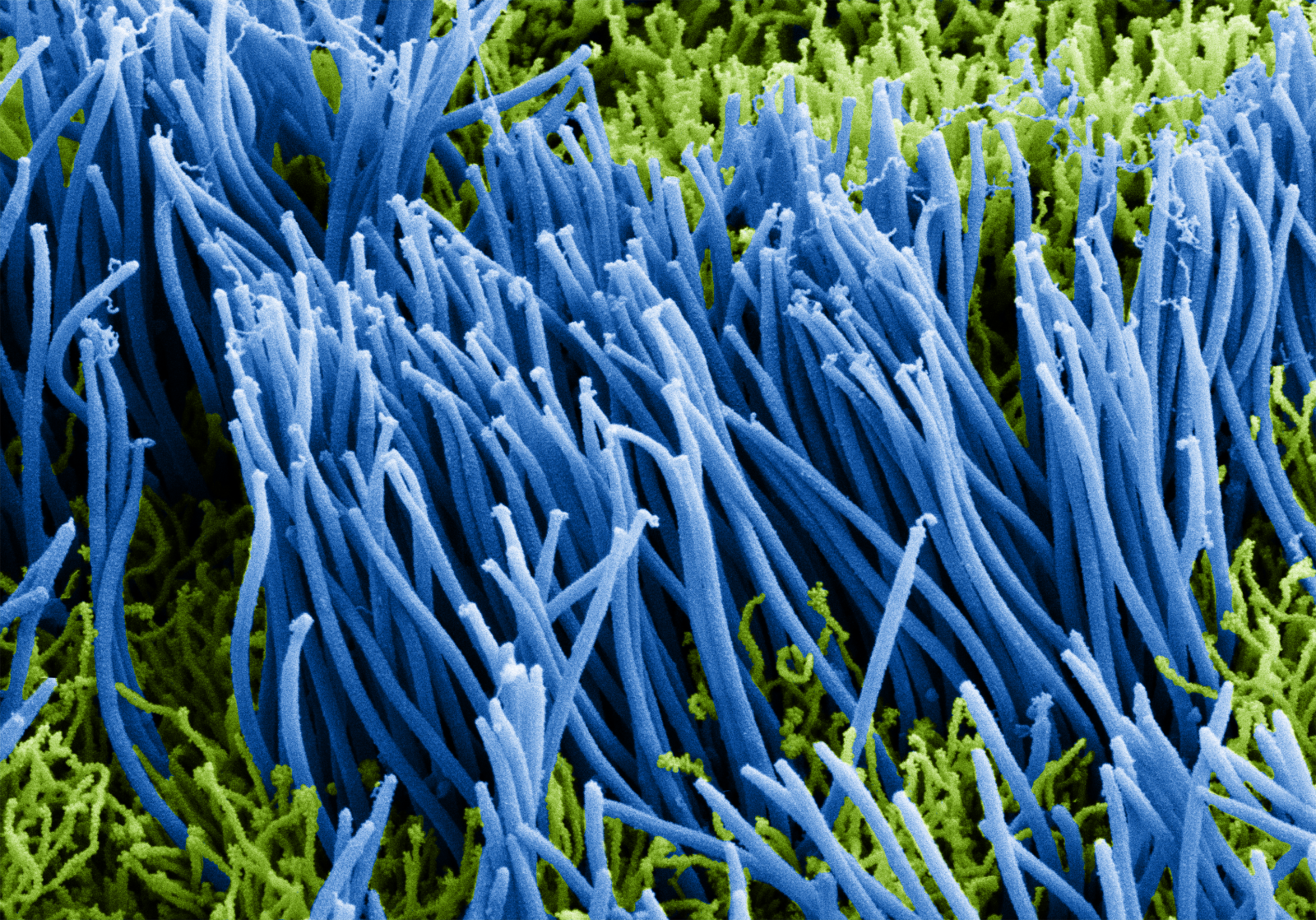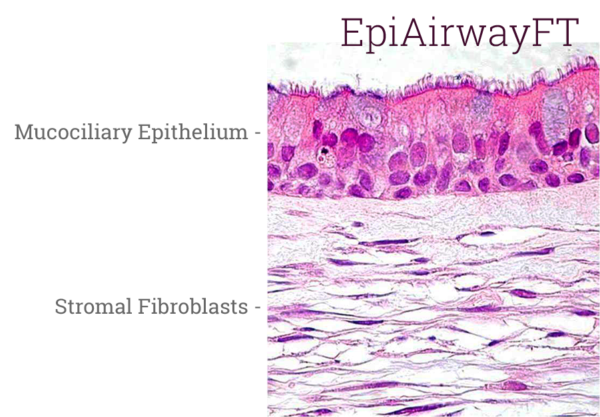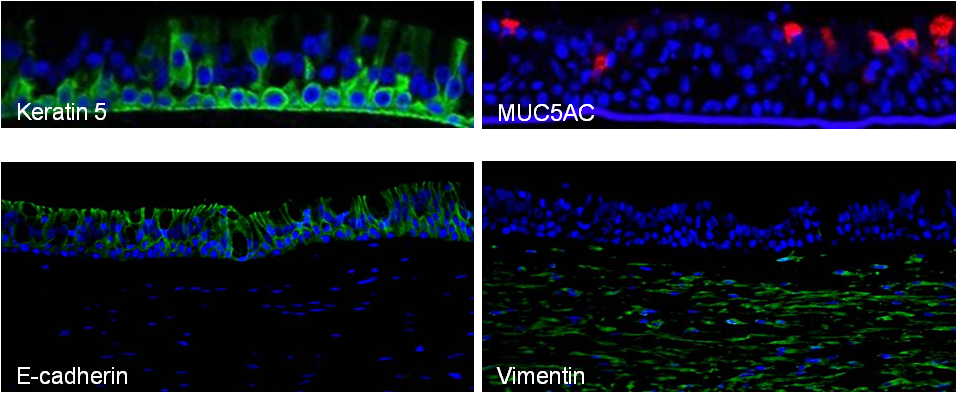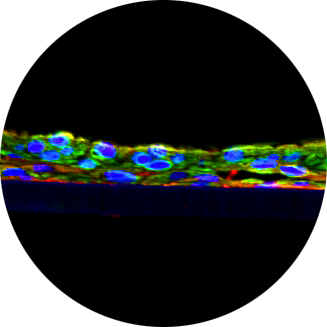EpiAirway™
EpiAirway is a cutting-edge, lab-engineered human airway tissue model that replicates the cellular structure and function of the human respiratory system. Designed for advanced research, it is ideal for studying respiratory diseases, drug delivery, and the effects of airborne substances on the lungs. EpiAirway offers a precise and ethical alternative to animal testing, enabling more accurate and human-relevant insights into airway health.

EpiAirway™
Mattek’s 3D tissue models of the human airway are advancing in vitro respiratory research worldwide. Allowing for physiological exposures to pathogens, chemicals or therapeutics, EpiAirway’s human-relevant biological responses are changing the way scientists research respiratory diseases and drug development. Let EpiAirway advance your science.
- Mucociliary Differentiation
- Produced from healthy or diseased primary human cells
- 30+ donors available
- Delivered ready-to-use
Download the EpiAirway Data Sheet


EpiAirway is a ready-to-use, 3D mucociliary tissue model consisting of normal, human-derived tracheal/bronchial epithelial cells also available as a co-culture system with normal human stromal fibroblasts (EpiAirwayFT). Cultured at the air-liquid interface (ALI), EpiAirway recapitulates the in vivo phenotypes of barrier, mucociliary responses, infection, toxicity responses and disease. With over 100 technical references available, EpiAirway is amenable to acute or long-term chronic studies across a wide range of highly predictive in vitro applications.

EpiAirway exhibits human relevant tissue structure and cellular morphology with high uniformity and reproducibility. Its 3D structure consists of organized Keratin 5+ basal cells, mucus producing goblet cells, functional tight junctions and beating cilia. EpiAirwayFT incorporates human fibroblasts in an extracellular stromal matrix ideal for inflammation and fibrosis research.

The EpiAirway 3D human tissue model is routinely utilized for a range of applications including safety & risk assessment, anti-viral research, inflammation & fibrosis and drug delivery. Simple protocols and the evaluation of early cellular endpoints allow scientists to acquire data in days, not weeks or months.
Virus Infection
Use EpiAirway to study respiratory virus attachment, replication, innate immune responses and anti-viral drug development.
Drug Delivery
Utilize existing transdermal permeation equipment or Mattek’s simple single insert permeation devices to assess API permeation and flux.
Inhalation Toxicology
Use EpiAirway (available in several formats for physiological exposure systems) to determine relative safety with the EpiAirway IC-75 assay.
Inhalation Toxicology Reference
Inflammation and Fibrosis
Employ EpiAirway’s diverse donor inventory of healthy and diseased donors (Asthma, COPD, Smoker, Goblet Cell Hyperplasia) to elucidate molecular pathways and assess therapeutic efficacy.

